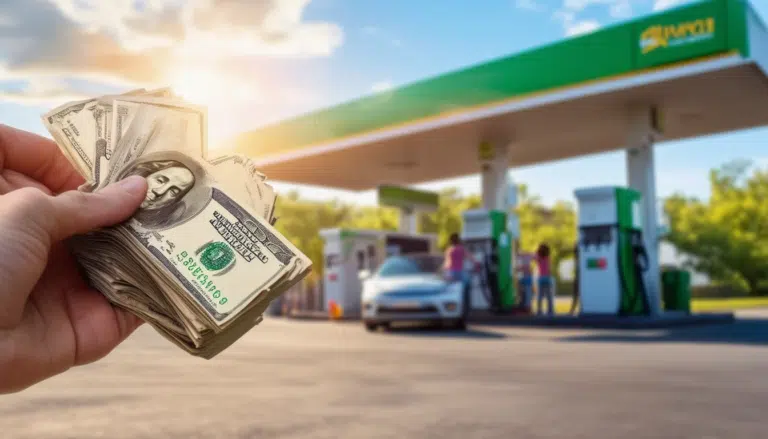Mantenimiento y economía de combustible: un círculo virtuoso
The proper maintenance of vehicles not only ensures optimal performance but also translates into significant fuel savings. Through preventive practices and regular inspections, owners can ensure that each component functions efficiently, which in turn reduces operational costs and minimizes environmental impact. This approach creates a virtuous circle where investment in maintenance reflects in lower fuel expenses and greater vehicle durability, benefiting both personal finances and the health of the planet.
The proper maintenance of vehicles not only guarantees their optimal performance but is also essential for maximizing fuel economy. Through preventive maintenance practices and constant attention to various vehicle components, a virtuous circle can be created that promotes energy efficiency and savings in operational costs. This article addresses the critical relationship between maintenance and fuel consumption, offering practical tips and strategies to optimize both aspects.
Effective maintenance and fuel savings
Preventive maintenance is a crucial strategy that allows for maximizing a vehicle’s fuel economy. Regular inspections, such as checking the tire pressure and cleaning or replacing filters, can improve the vehicle’s efficiency by up to 10%. This ensures that each component of the vehicle is in optimal condition, reducing friction and the effort required for its operation.
The science behind maintenance and fuel savings
Understanding the relationship between the condition of various parts of the vehicle and its energy efficiency is fundamental. For example, proper alignment of the tires, correct adjustment of the injection system, and engine maintenance are factors that directly impact fuel savings. Each of these components plays a vital role in the vehicle’s overall performance, and neglecting them can result in higher fuel consumption and increased costs.
Investments in maintenance: key to efficiency
Investments in the maintenance of vehicles and machinery are essential to ensure their optimal performance. By dedicating resources to proper maintenance, operational costs, including fuel savings, can be reduced. This proactive approach not only benefits companies but also individual drivers, who can enjoy a longer and more efficient service from their cars.
Practical tips for an efficient fuel system
A healthy fuel system is essential for the optimal performance of any vehicle. Implementing a preventive maintenance plan that includes checking fuel filters and the injection system is a smart investment. A series of simple steps, such as regularly checking tire pressure or maintaining a constant speed, can significantly improve fuel economy.
The impact of driver behavior on fuel consumption
Driver behavior plays a significant role in fuel consumption. Adopting proper acceleration and braking techniques, as well as avoiding abrupt changes in speed, can reduce gasoline consumption by up to 20%. Therefore, good education in efficient driving is an integral part of the vehicle’s overall maintenance.
How maintenance improves the vehicle’s lifespan
Regular maintenance not only contributes to immediate fuel savings but also prolongs the lifespan of the vehicle. By addressing maintenance needs at the right time, owners avoid costly repairs and can maximize the durability of their investments. This creates a cycle of optimization that benefits both personal finances and the environment by reducing pollutant emissions.
Recommendations for keeping the vehicle in optimal condition
Practical recommendations for ensuring efficient fuel consumption include constant monitoring of the electrical systems, transmission, and exhaust system, all of which influence fuel economy. It is essential to operate the vehicle within the appropriate ranges and meet maintenance requirements to avoid mistakes that can lead to excessive gasoline consumption.
Conclusion
Ultimately, the link between good maintenance and fuel savings should not be underestimated. Implementing proper maintenance practices not only optimizes vehicle performance but also makes driving more economical and sustainable. Expertise in this area is key to fostering responsible and efficient use of resources, in addition to contributing to a healthier environment.
The proper maintenance of vehicles is not only crucial for their own performance but also has a direct impact on fuel economy. This relationship becomes a true virtuous circle, where good maintenance not only ensures a long lifespan of the vehicle but also reduces operational costs, generating long-term savings. By conducting regular inspections and keeping vehicle components in optimal condition, one achieves an improvement in fuel efficiency, which in turn decreases the amount of fuel consumed.
Practices such as checking tire pressure, cleaning or replacing filters, and maintaining the injection system are essential for maximizing the vehicle’s energy efficiency. The science behind these practices demonstrates that each component plays a significant role in the fuel performance and the more care they receive, the better they function. Investing resources in this type of maintenance results not only in economic benefits but also in environmental benefits, contributing to the reduction of CO2 emissions.
In a world where sustainability is increasingly relevant, properly managing vehicle maintenance becomes a crucial aspect for fuel savings. By creating a habit of preventive maintenance, drivers not only protect their investment but also contribute to a cleaner environment. This calculated approach to vehicle management generates a positive impact, benefiting both the vehicle owner and the overall environment, establishing a synergy between efficiency and sustainability.



